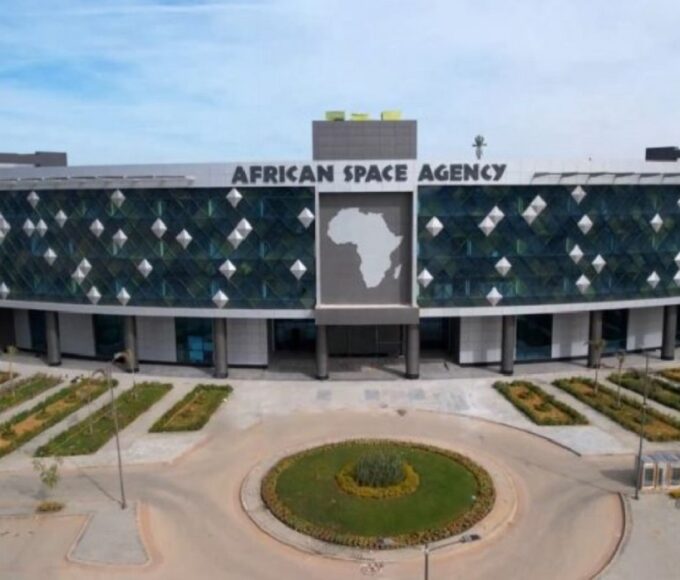The Rise of African Military Tech Startups: Innovation from the Battlefield
This article explores how startups are emerging from military need, the challenges they navigate, and why battlefield-driven innovation is no longer a luxury—it’s a strategic necessity.

African startup ecosystems are often associated with fintech or ag‑tech—but a new wave of entrepreneurs is turning its attention to military and defence innovation. From battlefield data analytics to low‑cost drones and ruggedized battlefield communications, military tech startups are beginning to reshape how African forces prepare, operate, and adapt.
This article explores how startups are emerging from military need, the challenges they navigate, and why battlefield-driven innovation is no longer a luxury—it’s a strategic necessity.
The New Battlefield of Innovation
For decades, Africa’s militaries relied almost entirely on foreign suppliers to equip their forces. Today, that dependency is friction-filled and costly—especially when spare parts disappear or political tensions interrupt supply.
In response, engineers and veterans are launching startups to build practical, low-cost solutions tailored for African operational environments: think desert-ready drones, solar-powered comms, and rugged UAVs for ISR (Intelligence, Surveillance, Reconnaissance). These solutions tend to vibrate with battlefield realities more than lab prototypes ever could.
Key Startup Profiles
- FalconEye Labs (South Africa) deploys solar‑hybrid micro-drones capable of up to 24‑hour ISR loiter, used in border and park surveillance.
- NaijaTech Defence Solutions (Nigeria) develops encrypted battlefield mesh networks that connect foot patrols with command centers up to 50 km away.
- Safiri UAV (Kenya) manufactures drone kits locally—replacing helicopter ISR in anti-poaching and disaster zones—at one-fifth the cost.
- DesertComm (Egypt) produces modular, dust-resistant V/UHF radios for Saharan operations, now adopted by ten North African armies.
From Idea to Integration
Military startups face unique hurdles: access to military test ranges, security vetting, and matching bureaucratic timelines. But a few have bucked the trend through direct partnerships:
- Proof‑of‑concept awarded during live military exercises (e.g., FalconEye’s integration with SANDF Range Exercise 2024).
- Pilot deployments under Operation Hadin Kai in Nigeria, where NaijaTech’s comms mesh cut misreporting by 35%.
- R&D investment through regional defence innovation hubs —such as Dakar’s Defence Tech Lab and Nairobi’s Security Innovation Fund.
Challenges: Regulatory and Cultural Friction
Military innovation requires trust—and regulatory structures in most African countries are immature:
- Procurement laws often exclude startups in favour of established state suppliers.
- Security clearance processes are lengthy and opaque.
- Maintenance capabilities are missing—without spare parts or local servicing, most fail after field trials.
Despite this, early successes have motivated regional bodies. The AU’s Emerging Defence Innovation Practice Group, launched in 2024, now recommends member states include a ‘Mil‑Tech Start‑Up Fund’ in national defence budgets.
Impact Snapshot (2023–2024)
- Active military tech startups in Africa: ~35
- Governments offering startup pilot programs: 6
- Listed military innovation hubs: 4 (Nairobi, Dakar, Pretoria, Cairo)
- Cost savings vs foreign systems: 40–80%
- Combined funding mobilized: US$23 million
Why It Matters
Traditional procurement is slow: it takes years to deliver systems bought abroad—and they often fail to meet real-world endurance or local interoperability needs.
By contrast, military startups bring speed, customisation, and agility. In places like the Sahel—where insurgents exploit weak surveillance—local startups are providing repeatable tech that can be repaired and redeployed within days.
Looking Ahead
True scale will require three structural shifts:
- Defence incubators with seed grants and military mentors in each regional bloc
- Procurement reform enabling micro-contracts for startups
- Export frameworks to scale innovation across Africa
Governments are beginning to respond. In 2025, Kenya and Nigeria agreed to share IP and co‑production of Safiri UAVs. Meanwhile, the African Defence Tech Summit 2025 will spotlight over 20 military startups and match them with national acquisition officers.
Growing an Ecosystem of Strategic Sovereignty
African military tech startups face hurdles—and yet their seeds are spreading. They promise to shift defence from dependency to adaptability, from gross imports to local empowerment, from rigid platforms to rapid iteration.
On the battlefield of tomorrow, African defence innovation may well be defined not by pristine jet fighters, but by homegrown drones, satellite-linked comms networks, and resilient low-cost ISR — crafted from necessity, driven by diaspora talent, scaled by collaboration
Recent Posts
Categories
- Air & Aerospace17
- Border Security15
- Civil Security6
- Civil Wars4
- Crisis5
- Cyber Security8
- Defense24
- Diplomacy19
- Entrepreneurship1
- Events5
- Global Security Watch6
- Industry8
- Land & Army9
- Leadership & Training5
- Military Aviation7
- Military History27
- Military Speeches1
- More1
- Naval & Maritime9
- Policies1
- Resources2
- Security12
- Special Forces2
- Systems And Technology9
- Tech6
- Uncategorized6
- UNSC1
- Veterans7
- Women in Defence9
Related Articles
SYSTEMS & TECHNOLOGY – THE CASE FOR SMART BORDERS IN AFRICA
On the continent of Africa, vast and varied landscape, borders often act...
ByKing Richard Igimoh, Group Editor ALODecember 11, 2025SYSTEMS & TECHNOLOGY – AFRICAN SATELLITE PROGRAMS: STRATEGIC GAME CHANGERS?
Across Africa’s 30 million square kilometers where borders stretch thin and climate...
ByKing Richard Igimoh, Group Editor ALONovember 19, 2025THE EVOLVING CYBERSECURITY FRONTIER IN AFRICA
Africa’s cybersecurity landscape is rapidly transforming as digital adoption surges across the...
ByKing Richard Igimoh, Group Editor ALOSeptember 5, 2025Counterinsurgency in the Age of Social Media: Hashtag Wars and the Battle for Minds
At 2:37 a.m. on a humid night in northern Mozambique, a short,...
ByKing Richard Igimoh, Group Editor ALOAugust 11, 2025













